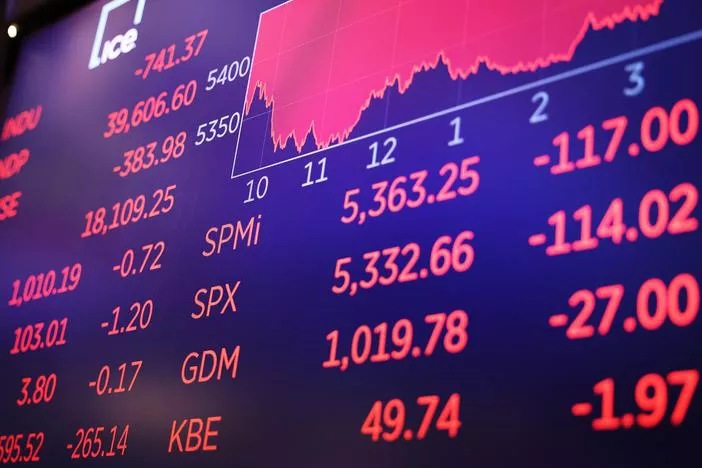The stock market in China is experiencing a remarkable revival, with investors flocking to equities driven by a combination of government policies and a fear of missing out on what many believe could be a historic rally. After years of economic challenges, the shift from caution to enthusiasm has revitalized trading, leading to unprecedented levels of stock turnover and investor engagement.
A Surge in Stock Trading
Brokerages across the country are bustling with activity as retail investors scramble to take advantage of the market’s newfound energy. Orders are flooding trading systems, with many investors moving their funds out of bonds and deposits and into stocks. Darren Wang, a 30-year-old office worker, aptly encapsulated the sentiment: “Deposit rates are too low, and real estate investment is no longer safe. There’s no other way to be rich other than redoubling bets on stocks.”
Recent Market Performance
After three years of subdued trading, marked by a sluggish economy and a property debt crisis, the mood shifted dramatically last week. The blue-chip CSI300 Index surged by 16%—the largest weekly gain since 1998—following a series of stimulus announcements from the government, including interest rate cuts and a $114 billion initiative aimed at propelling stock prices higher.
Stimulus Measures and Market Reaction
While many of the announced policies have yet to be implemented, the mere prospect of financial support has encouraged investors to reallocate their resources. “Life has been tough for so long, and finally, it’s time to make some money,” said Wen Hao, a manager at a tech startup who recently invested in energy stocks. He compared the current rally to the 2015 bull run, which saw Shanghai’s stock benchmark double in six months, fueled by significant state investment.
The central bank has introduced a 500 billion yuan ($71.30 billion) swap program to finance stock purchases by brokers, funds, and insurers, alongside a 300 billion yuan re-lending facility to support share buybacks by listed companies. These measures indicate a robust governmental backing for the stock market, further enticing investors.
Trading Volume and Investor Behavior
On Monday, the CSI300 Index surged over 8%, extending the previous week’s impressive gains. Shanghai stocks rose more than 7%, while Shenzhen shares climbed over 10%, with a combined turnover of 2.6 trillion yuan—higher than levels seen during past bull runs. The influx of new investors has led to unprecedented demand for trading accounts and margin financing, resulting in increased workloads for brokerage firms, such as Guotai Junan Securities and Citic, which have been inundated with inquiries and account openings.
Caution Amidst Euphoria
Despite the excitement, some investors remain skeptical about the sustainability of the rally. Wu Jie, a 48-year-old individual trader, expressed bewilderment at the sudden market enthusiasm, noting that the economy is still struggling. “The economy remains in bad shape, but if you look at the trading volume, the rally will likely be sustained,” he said, indicating that he is waiting for a significant correction to invest more heavily.
A Shift in Investment Strategies
The move toward equities signifies a broader trend of capital migration away from traditional safe assets. The recent decline in China’s 30-year treasury bond futures, which hit a two-month low, underscores this shift. Zhao Jian, head of the Atlantis Finance Research Institute, pointed out that a massive outflow of funds from bonds, wealth management products, and fixed-income assets is underway, with trillions of yuan being redirected into the stock market.
Conclusion
China’s stock market is witnessing a dramatic resurgence, fueled by a combination of governmental support and a wave of retail investor optimism. While many are eager to capitalize on the current bullish sentiment, caution remains as underlying economic issues persist. As the market continues to evolve, the implications for both investors and the broader economy will be closely watched. The coming months may reveal whether this rally is indeed the start of a new era for China’s financial markets or a fleeting moment in a still-fragile economic landscape.
Related Topics:

